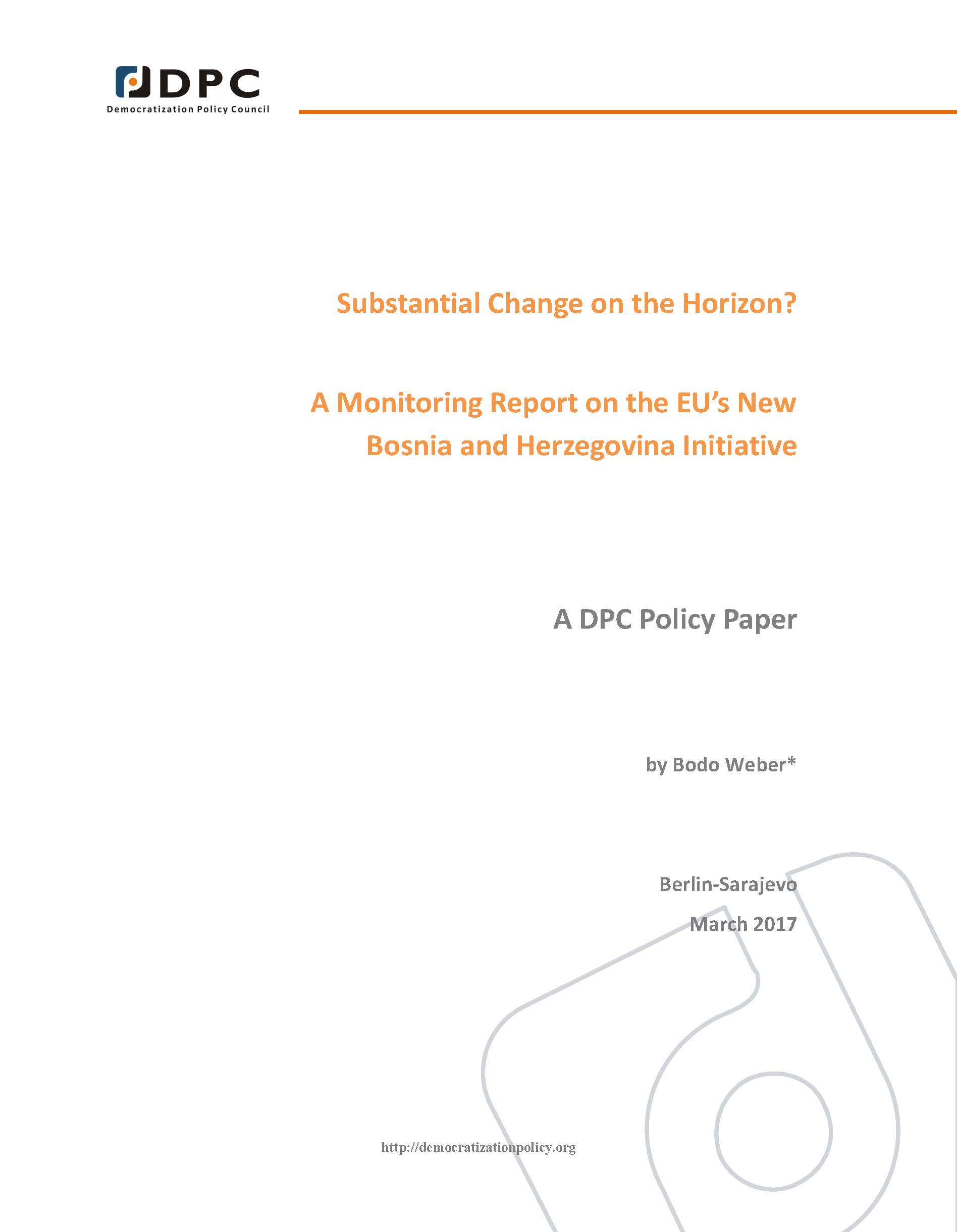Substantial Change on the Horizon? A Monitoring Report on the EU’s New Bosnia and Herzegovina Initiative.
Substantial Change on the Horizon? A Monitoring Report on the EU’s New Bosnia and Herzegovina Initiative.
Author(s): Bodo Weber
Contributor(s): Adelina Stupar (Editor)
Subject(s): Governance, International relations/trade, EU-Approach / EU-Accession / EU-Development
Published by: DPC Democratization Policy Council e.V.
Keywords: BiH; EU; initiative; monitoring; report; labour market; business climate; public finace; taxation; pension; healthcare; social welfare; authorities; US; World Bank; IMF; parliament; civil society;
Summary/Abstract: In November 2014, Germany and the United Kingdom launched a new policy initiative for Bosnia and Herzegovina (BiH). One month later, the European Union adopted the initiative as its own new EU initiative for BiH. Earlier, in February 2014, violent social protests had broken out in BiH and marked the failure of the EU’s previous policy approach in catalyzing real change in the country. At the same time, the protests drew new attention in the West to continuing problems in BiH. This enabled Berlin and London, whose dispute over the correct course of action to take in BiH had blocked the Union from having any meaningful policy, to get together behind a joint initiative. The focus of the new initiative was on structural socio-economic reform. Sensitive political issues like constitutional reform were pushed aside – for consideration at a later stage in enlargement – in order to unblock BiH’s long stalled EU integration process. From a distance, the initiative may appear successful; in September 2016, less than two years after the start of the new initiative, the Union’s General Affairs Council (GAC) referred BiH’s membership application to the European Commission to prepare an Opinion. This marked the last of three steps in the EU integration process, originally foreseen as a reward for the fulfillment of certain reform conditions. This was followed by the entering into force of the long-delayed Stabilisation and Association Agreement (SAA) and BiH’s official application for membership. In addition, the centerpiece of the initiative, the so-called Reform Agenda was agreed and implementation initiated. However, close examination of the state of reform within the scope of the EU initiative challenges this positive impression. The reality is that the limited reforms achieved so far are fragile, sustainability of the reforms is highly questionable and the long-term socio-political outlook remains tenuous.
Series: DEM. POLICY COUNCIL - Policy Papers
- Page Count: 42
- Publication Year: 2017
- Language: English
- Content File-PDF

